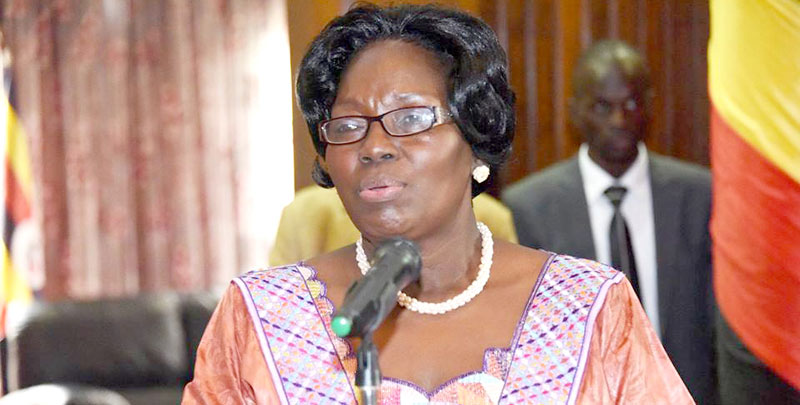Analysis
Kyabazinga faces internal revolt
If the Kyabazinga of Busoga William Gabula Nadiope IV insists on taking up his appointment as Ambassador in the Office of the President, he will have exposed himself to potential revolt that will likely end in him being forced from the throne.
This prospect comes from the fact that all the three of Busoga Kingdom’s top governing organs; the Royal Chiefs Council, publicly denounced the appointment and urged the Kyabazinga to turn it down.
The Clan leaders held a meeting on Thursday last week, mulled over the appointment of the Kyabazinga as the Ambassador in charge of Special Duties, and concluded that this was going to cause disharmony.
Reflecting on the Kingdom constitution, the National Constitution and the Traditional and Cultural Leaders Act, the leaders deduced that it was not reasonable for the Kyabazinga to be placed in a position where he might be required to take instructions from his appointing authority, president Museven other than advise from the Royal Chiefs Council, The Clan Leaders Court and Busoga Lukiiko.
“The appointment is inconsistent with the constitution, which bars cultural leaders from engaging in partisan politics, have or exercise any administrative, legislative or executive powers of government or Local Government,” the letter noted.
“In the circumstances and best interest of Obwakyabazinga Bwa Busoga, the Busoga Clan Leaders are duly bound to advise the withholding of this appointment,” added.
“Notwithstanding, Busoga clan leaders’ council concurs that the president of Uganda may from time to time consult with Isebantu the Kyabazinga on such matters as both may deem appropriate”, the clan leaders council concluded in a letter dully signed by Keith Mutengu, the chairperson clan leaders council and Samuel Kiirya, their secretary.
For many, the president violated Uganda’s supreme law; the 1995 Constitution as well as the Institution of Traditional or Cultural Leaders Act, 2011, which specifically bars traditional leaders from exercising administrative, legislative or executive powers.
Article 246 (1) (e) of the Constitution states thus: “A person shall not, while remaining a traditional leader or cultural leader join or participate in partisan politics.”
Article 12 of the Institution of Traditional or Cultural Leaders Act, 2011 also states thus: “A traditional or cultural leader shall not have or exercise any administrative, legislative or executive powers of government or a local government.”
The appointment of Kyabazinga to an Ambassadorial role took many Ugandans by surprise. While it left some traditionalists offended, many hailed President Museveni for his exceptional political wizardry.
Kyabazinga’s grandfather Sir. William Wilberforce Kadhumbula Nadiope III, who ruled as Kyabazinga from 1949 until 1955, and from 1962 until 1966, served as the first Vice President of Uganda while at the same time as holding the Kyabazinga crown.
Despite being royals, the Nadiopes are well known for their political ties that have actually enabled them to clinch Ambassadorial roles. His father the late Professor Wilson Gabula Nadiope II once served as Minister of Tourism in central government.
This is not the first time president Museveni is testing Parliament and indeed Ugandans’ alertness about the law. The last time he seconded the late Gen. Aronda Nyakairima, a serving army man then to the position of Minister of Internal Affairs, against the law of the land.
Some political observers have also alluded to political differences between President Museveni and the Speaker of Parliament Rebecca Kadaga as having been a motivating factor for the President to appoint Kyabazinga as an Ambassador. This school of thought argues that President Museveni may have wanted to hit back at Kadaga for her pointed criticism of the ‘Presidential Handshake’ deal. By appointing Kyabazinga, the president would have undermined Kadaga’s authority and support in Busoga.
As pointed out by Makerere University history lecturer Mwambutsya Ndebesa: “How will the Kyabazinga (king of Busoga) in his new post as ambassador appear before the Kadaga committee for vetting?!. Is Kadaga not supposed to be a subject (omuzana) of the King of Busoga!”
Others also argue that Kyabazinga’s appointment could be an attempt by president Museven, not just to weaken Busoga per se but other kingdoms as well by entangling them into murky politics which is intrinsically divisive, and therefore go a long way in entrenching ‘his’ divide and rule policy.
As remarked by one Francis Kafuko: “There are many other ways to return our glory known over the years than exposing the Kyabazinga in the doldrums of state structures that have unwinding failure. On this it is divisive than uniting the people. This fusion will just accelerate confusion that seemingly has been managed by our mandated and wholly accepted Kyabanzinga.”
Comments




















